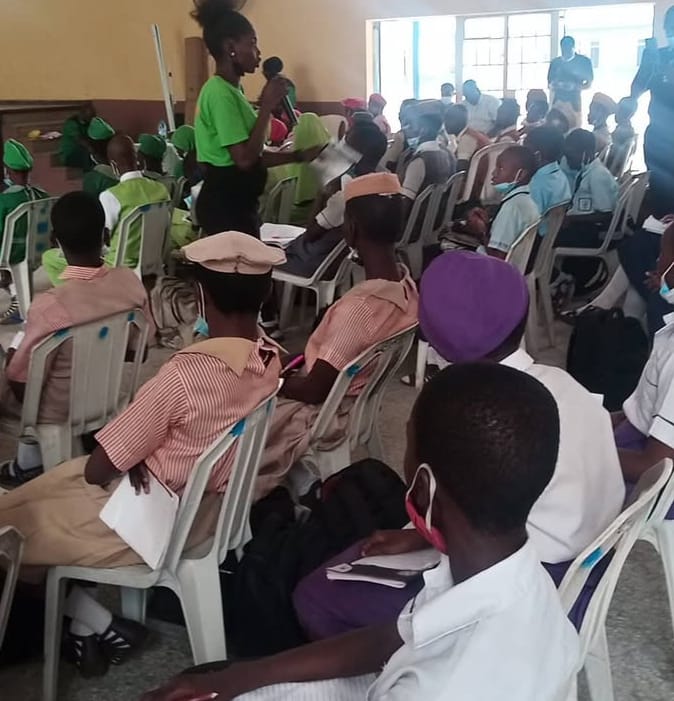🌍 Our Impact
At D’Young Energy, impact means more than numbers — it means lives changed, communities empowered, and the next generation prepared to lead Africa’s clean energy transition.
Through our advocacy, education, and community-driven programs, we are helping homes, communities, schools, and youth move confidently from generators to solar energy.
Impact at a Glance
- 🏠 500+ households educated on solar adoption.
- 🌍 Active in 4 African countries through our youth representatives.
- 🏫 1,000+ schoolchildren reached through climate and clean energy education.
- 🎓 50+ young leaders trained as clean energy advocates.

school climate education
We believe children are the future drivers of climate action. That’s why our School Climate Education Initiative introduces clean energy and sustainability into classrooms.
In Partnership with the Lagos State Ministry of Environment & Water Resources
Together, we are equipping schoolchildren in Lagos State with the knowledge and tools to understand climate change and clean energy. Through workshops, interactive lessons, and school clubs, we are raising a generation that will choose solar over generators.

Community -level change
We don't stop at awareness. Our workshops and training give participants practical skills in solar system design, energy audits, and climate advocacy, creating both green jobs and climate leaders. Our grassroots clean energy projects bring practical awareness and demonstrations to underserved communities. In partnership with the government parastatals, we empower community youth and women to harness opportunities in solar product sales.

Solar Matters
Our blog, Solar Matters, is your trusted guide to understanding and embracing solar energy. Here, we address the common fears and challenges people face when transitioning to solar power, providing clear answers and practical insights. We also share honest solar product reviews to help potential buyers make confident choices about what to buy. Whether you’re curious, cautious, or ready to go solar, Solar Matters gives you the knowledge you need to make informed, sustainable decisions.
Partner With Us
Our growing impact is made possible through collaboration.
government agencies
The Lagos State Ministry of Environment & Water Resources – Climate education for schoolchildren in Lagos.
climATE AMBASSADORS
Local communities, schools, and youth-led organizations across Africa.
ECO-CONSCIOUS ORGANIZATION
Solar companies and NGOs are supporting our clean energy advocacy.
